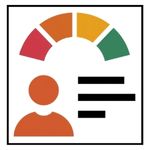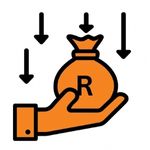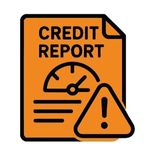
The dynamics of money management and financial planning in today’s economic scenario can be more complex than one can imagine. With the rising cost of living and ambitious life goals, many individuals in South Africa rely on various financial products to meet their needs and achieve their aspirations. Loans have become a crucial financial tool for a significant majority, whether it’s for purchasing a car, starting a new business, or dealing with emergencies. Loans provide the much-needed financial support.
Possible Reasons Your Loan Application Was Declined
There are numerous reasons why a loan application may be unsuccessful. It is advisable to contact your lender directly for clarification or obtain a copy of your credit report to review your financial standing. In South Africa, you are entitled to access your credit report once a year at no cost, and this document will provide a detailed overview to help you better understand why your application may have been declined. Some common reasons include the following:

Low Or No Credit History
If you have never previously taken out credit or used a credit card, it is possible that you do not yet have any credit history attached to your name. A lack of credit history makes it difficult for lenders to assess your borrowing behaviour and associated risk. If you do have credit accounts, it is worthwhile to check your credit score before submitting an application. A low credit score may indicate a high level of risk to lenders, often arising from issues such as multiple loan applications or missed payments in the past.

Insufficient Income
Lenders require applicants to demonstrate a stable and sufficient level of income to ensure that they are capable of meeting monthly repayment obligations. If your income falls below the lender’s minimum threshold, your application may be declined. It is important to have a clear understanding of the minimum income requirements before applying for a loan.

High Debt-To-Income (DTI) Ratio
Your DTI ratio measures the proportion of your monthly debt repayments relative to your income. Ideally, this figure should not exceed 30%. If your DTI is considerably higher, lenders may view you as financially overextended, and therefore a higher risk. To improve your chances of approval, you may need to focus on repaying some of your existing debts or finding ways to increase your income.

Errors On Your Credit Report
Although less common, inaccuracies on a credit report, such as those resulting from identity theft or a dispute with a former creditor, can negatively impact a loan application. Such errors may remain on your record for a prolonged period unless addressed. Regularly reviewing your credit report and taking prompt action to correct inaccuracies can help protect your borrowing prospects.

Incomplete Documentation
Failing to provide all the necessary paperwork can result in a declined application. Each lender typically has a checklist of required documents, including proof of income, identification, and bank statements. It is advisable to carefully review the list and ensure that all required items have been correctly submitted to avoid unnecessary delays or rejections.
Don’t let a declined loan discourage you. Discover actionable Ways To Get Approved For A Personal Loan and turn rejections into approvals with strategic changes.
About Arcadia Finance
Get your loan effortlessly with Arcadia Finance. Applying doesn’t cost a thing, and you can choose from 19 reputable lenders. Each lender operates within the regulations established by the National Credit Regulator in South Africa.
Request a Decline Letter or Feedback
If your loan application has been declined, it’s important not to be disheartened. One of the first steps you should take is to request a formal decline letter or direct feedback from the lender. In South Africa, financial institutions are generally obliged to provide a reason for rejecting a loan, especially if the decision was based on your credit record or affordability assessment.
Understanding the specific reason for the refusal can help you identify areas for improvement before you apply again. Whether it’s due to insufficient income, a high debt-to-income ratio, or adverse credit information, having clear feedback enables you to take focused and constructive action.
Most lenders will issue a written explanation upon request, either by email or post. If you haven’t received one, don’t hesitate to follow up. Being proactive shows that you’re taking your financial situation seriously and helps set the stage for a stronger application in the future.

What Are My Next Steps?
- Carefully Review Your Decline Notice: Take the time to thoroughly read through the reasons provided for the rejection of your loan application, as this will guide you on how best to proceed.
- Check Your Credit Report: Obtain a copy of your credit report from a recognised South African credit bureau to identify whether a lower credit score may have contributed to the decision.
- Work on Improving Your Credit Score: Make a concerted effort to strengthen your credit profile by managing existing debts responsibly and ensuring all accounts are kept up to date.
- Consider Applying for a Smaller Loan Amount: You might wish to submit a new application for a lower loan amount with more favourable terms, thereby increasing your likelihood of approval.
- Give Yourself Time Before Reapplying: The process of applying for credit requires patience. Allow a reasonable period to pass before trying again, ensuring your next application is better aligned with your financial profile.
Impact Of Loan Rejection On Your Credit Score
A loan rejection can indeed have an impact on your credit score. Every time a lender declines your application, it is usually recorded alongside the hard credit enquiry made during the application process. While a single rejection might only cause a slight drop in your credit rating, several rejections within a short space of time can collectively lower your overall creditworthiness even further.
A weakened credit score can have longer-term consequences. You may find it more difficult to access credit in the future, and if approved, you could face higher interest rates compared to applicants with stronger credit profiles. Managing your credit applications carefully is therefore essential to protect your financial opportunities moving forward.
Practice Good Credit Habits
Regardless of the reason your application was declined, it is wise to prioritise maintaining strong credit habits to strengthen your credit profile over time.
Ensure Your Monthly Payments Are Made On Time
Your payment history carries the most weight when calculating your credit score. Payments that are 30 days or more past due are recorded on your credit report and are viewed as negative marks. Regularly meeting your payment deadlines plays a significant role in improving and protecting your credit standing.
Keep Your Credit Card Balances As Low As Possible
Your credit utilisation ratio, the percentage of your available credit that you are using, also has a considerable impact on your credit score. If your credit card balances are high compared to your limits, it is advisable to pay them down as soon as you can. Afterwards, try to maintain low balances to support a healthier credit rating.
Limit The Number Of Hard Credit Enquiries
Following a loan application rejection, it may be tempting to submit multiple applications in quick succession. However, each hard enquiry made by lenders slightly lowers your credit score. While one or two enquiries may have minimal effect, numerous enquiries over a short period can collectively reduce your credit score more noticeably. It is better to pause, address any credit issues, and reapply once your profile has strengthened.
Alternatives To Traditional Loans
If your loan application has been declined, there are still various ways to access the funds you need without immediately reapplying for another conventional loan. Exploring alternative options could provide a more practical and manageable financial solution.
Credit Union Loans
Credit unions in South Africa offer an alternative source of credit for individuals who may not meet traditional bank lending criteria. These member-based financial cooperatives often have more flexible lending policies and may be willing to assist members with lower credit scores. In many cases, the interest rates charged by credit unions are more competitive compared to those offered by private lenders specialising in bad credit loans.
Peer-To-Peer Lending Platforms
Peer-to-peer (P2P) lending platforms match borrowers directly with individual investors who are willing to fund loans. This process bypasses traditional banks and can result in a greater chance of approval, especially for those with modest credit profiles. Although interest rates can vary, P2P lending provides an accessible alternative for borrowers seeking smaller or more flexible funding options.
Salary Advance Options From Employers
Some employers in South Africa offer salary advance facilities to assist employees facing short-term financial difficulties. Rather than taking out a loan from a bank, a portion of your upcoming salary is made available to you early. While the advance is usually repaid through automatic deductions from your next payslip, it can serve as a practical and low-cost way to manage urgent expenses.
Accessing Existing Credit Facilities
If you already have an established credit facility, such as a credit card or overdraft, it may be worthwhile to use it for short-term needs rather than seeking a new loan. Responsible use of available credit can bridge temporary financial gaps without the need to submit a new application. However, it is important to monitor the interest rates associated with these facilities and ensure that repayments are made promptly to avoid accumulating further debt.
When to Consider Financial Advice or Debt Counselling
If your loan application has been declined more than once, or you’re unsure how to improve your financial situation, it may be time to seek professional guidance. Financial advisers and debt counsellors can help you identify the underlying issues in your finances and create a practical plan to address them.
Benefits of Seeking Financial Advice:
- Tailored budgeting support to help improve your affordability
- Debt management plans to reduce how much credit you’re using
- Long-term financial planning to prepare for future credit applications
Free or Low-Cost Resources in South Africa:
- National Credit Regulator (NCR) – Provides a directory of registered debt counsellors and credit providers
- DebtBusters – A trusted South African debt counselling service
- HelloPaisa and FinChoice – Offer financial literacy tools and education
- In-house bank financial advisers – Many banks offer complimentary or low-fee advice services
Seeking professional help not only increases your chances of securing credit in the future, but also puts you on a path toward greater financial stability and peace of mind.
Conclusion
Facing a loan rejection can be discouraging, but it does not mean that access to finance is out of reach. By understanding the reasons behind the decision, strengthening your credit habits, and considering alternative funding options, you can position yourself more favourably for future credit applications. In South Africa, there are various pathways available to rebuild your financial profile and secure the funds you need, whether through specialist lenders, peer-to-peer platforms, salary advances, or responsible use of existing credit facilities. With careful planning and patience, you can improve your chances of success over time.
Frequently Asked Questions
A loan rejection itself is not listed on your credit report, but the hard credit enquiry made during the application process will be recorded and can impact your credit score slightly.
It is advisable to wait at least three to six months before reapplying, depending on how much time you need to improve your credit profile and address any issues identified in your previous application.
You have the right to request detailed reasons for your rejection. While a formal appeal is not common practice, you can address any errors or inaccuracies and reapply once your financial situation improves.
Salary advances are often a more affordable option for short-term needs as they usually carry little to no interest, provided you repay the amount from your next payslip without defaulting.
Yes, the South African government offers several grants and schemes for individuals and businesses facing financial hardships. It’s recommended to research these options to see if you qualify.




